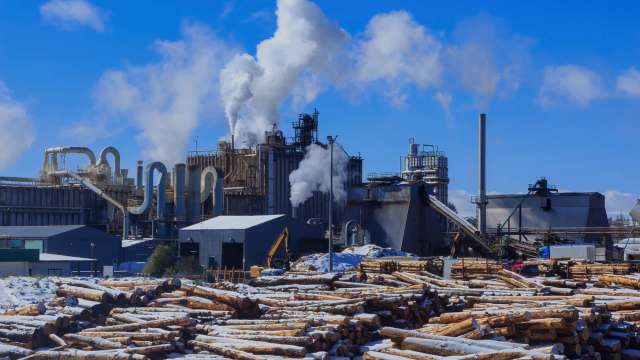Facility penalized for repeated pollution violations: 'Actions speak louder than words'

Major Pulp Mill Fined for Repeated Air Pollution Violations
A significant pulp mill in British Columbia has faced financial consequences after committing nearly two dozen air pollution violations within a span of just over two years. The facility, located in Skookumchuck and previously operated by Paper Excellence, exceeded legal air quality standards on 23 separate occasions between 2021 and 2022.
Government inspectors identified that the mill failed to properly manage pollution emissions from its wood-waste boiler, resulting in excessive smoke and dust being released into the surrounding environment. Despite these repeated infractions, the company was only subjected to a relatively modest fine.
According to reports, the British Columbia Ministry of Environment imposed a penalty of $17,200 on Domtar for exceeding the allowable smoke opacity threshold multiple times. Initially, inspectors had suggested a higher fine of $39,000, but this amount was reduced after Domtar argued that the pollution posed "low to none" health risks and that the company had taken steps to enhance its pollution control measures.
Environmental advocates remain concerned about the frequency of these violations, highlighting that such actions can have lasting impacts on nearby communities. Charles Latimer, head of strategic innovation at Greenpeace Canada, commented that "this is a reminder that a corporation's actions speak louder than words."
This is not the first time that facilities linked to Paper Excellence have attracted attention. In early 2024, the Crofton mill, another site under the same ownership, was fined $25,500 after releasing over one million liters of toxic wastewater into the Salish Sea. Additionally, in 2016, a federal court in Nova Scotia fined the company $225,000 for discharging 47 million liters of untreated waste into the ocean near Pictou Harbour.
Why Repeated Pollution Violations Matter
While the company maintained that the health risks were minimal, pollution from mills like this can have serious long-term effects on local communities. Exceeding opacity levels—measured by the amount of smoke in the air—often indicates the release of more fine particles, which can worsen respiratory issues and negatively impact the environment over time.
The Skookumchuck mill produces hundreds of thousands of tons of pulp annually, making consistent pollution control crucial. Repeated violations suggest that some companies are not meeting their environmental commitments, raising questions about their adherence to sustainability goals.
What Is Being Done About the Violations?
Domtar has 30 days to appeal the fine, although regulators have stated that the decision is final unless overturned. There have been longstanding concerns that British Columbia’s penalties for pollution are too lenient to effectively change corporate behavior.
Greenpeace Canada has previously criticized Paper Excellence, pointing out that the company’s green marketing efforts do not align with its actual practices. This discrepancy is often referred to as "greenwashing."
To protect communities from industrial pollution in the long term, stronger enforcement, harsher fines, and improved public transparency are essential. These measures could help ensure that corporations take their environmental responsibilities seriously.
Call to Action
Communities across the country are increasingly aware of the impact of industrial pollution on their health and environment. It is vital for individuals to stay informed and engaged in discussions about environmental policies and corporate accountability.
By supporting initiatives that promote sustainable practices and holding corporations accountable, people can contribute to a cleaner and healthier future. Advocacy, education, and collective action are key to driving meaningful change and ensuring that environmental protection remains a priority.



Komentar
Posting Komentar